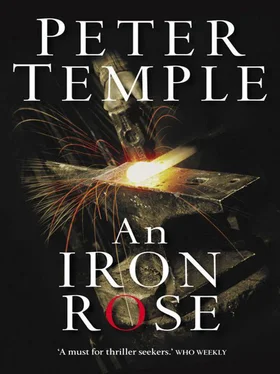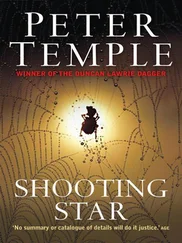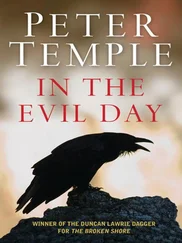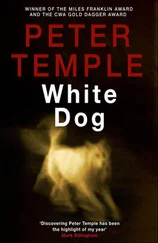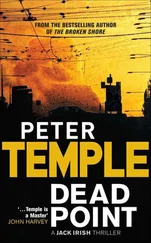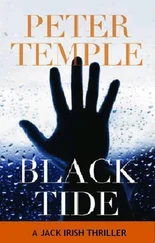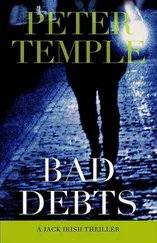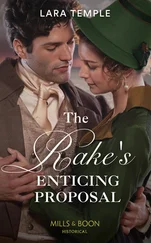Peter Temple - An Iron Rose
Здесь есть возможность читать онлайн «Peter Temple - An Iron Rose» весь текст электронной книги совершенно бесплатно (целиком полную версию без сокращений). В некоторых случаях можно слушать аудио, скачать через торрент в формате fb2 и присутствует краткое содержание. Жанр: Триллер, на английском языке. Описание произведения, (предисловие) а так же отзывы посетителей доступны на портале библиотеки ЛибКат.
- Название:An Iron Rose
- Автор:
- Жанр:
- Год:неизвестен
- ISBN:нет данных
- Рейтинг книги:3 / 5. Голосов: 1
-
Избранное:Добавить в избранное
- Отзывы:
-
Ваша оценка:
- 60
- 1
- 2
- 3
- 4
- 5
An Iron Rose: краткое содержание, описание и аннотация
Предлагаем к чтению аннотацию, описание, краткое содержание или предисловие (зависит от того, что написал сам автор книги «An Iron Rose»). Если вы не нашли необходимую информацию о книге — напишите в комментариях, мы постараемся отыскать её.
An Iron Rose — читать онлайн бесплатно полную книгу (весь текст) целиком
Ниже представлен текст книги, разбитый по страницам. Система сохранения места последней прочитанной страницы, позволяет с удобством читать онлайн бесплатно книгу «An Iron Rose», без необходимости каждый раз заново искать на чём Вы остановились. Поставьте закладку, и сможете в любой момент перейти на страницу, на которой закончили чтение.
Интервал:
Закладка:
Peter Temple
An Iron Rose
‘Mac,’ the voice said. ‘Ned’s dead.’
I couldn’t take it in. I screwed up my eyes and tried to focus, head full of sleep and beer dreams.
‘What?’ I said.
He said it again.
‘Jesus, no. When?’
‘Don’t know.’ There was a pause. ‘He’s hangin in the shed, Mac. Can you come?’
Dead? Ned? What time was it? Two forty-five am. Sunday morning. I pulled some faces, fighting the fog and the numb incomprehension. Then I said, ‘Okay. Right. Right. Listen, you sure he’s dead?’
There was a long silence. Lew sniffed. ‘Mac. Come.’
I was starting to think. ‘Ambulance. You call the ambulance?’
‘Yeah.’
‘Cops?’
‘No.’
‘Call them. I’ll be there in ten,’ I said.
In the passage, Drizabone off the hook, straight out the door. Didn’t need to dress. I’d fallen asleep in a cracked leather armchair, fully clothed, half-eaten pie on the arm, television on.
I didn’t see the dog but I heard him land on the tray. Little thump. Short route through Quinn’s Marsh, saved a few minutes by bumping open the gate with the roobars and putting the old Land Rover across the sheep paddock behind Ned Lowey’s house. You could see the house from a long way off: all the lights were on.
I slewed around the corner and Lew was in my headlights: arms at sides, hair wild, stretched tracksuit top hanging over pyjama pants, barefoot.
I got out at a run. ‘Stay there,’ I shouted over my shoulder to the dog. ‘Where?’
Lew led me down the path between the garage and the chook run to the big machine shed. The double doors were open and a slab of white light lay on the concrete apron. He stopped and pointed. He didn’t want to go in.
‘Wait for the ambulance in front,’ I said.
For a moment the light blinded me or I didn’t want to see. Then I focused on Ned, in striped pyjamas, arms neatly at his sides, hanging against the passenger side of the truck. His head was turned away from me. When I got close I saw why Lew had not answered my question about whether he was sure Ned was dead.
I looked up. The rope was tied to a rolled steel joist about two metres above the truck cab. Ned had climbed up onto the cab roof, tied the rope to the joist, slid it along, tied a slipknot around his neck. And stepped off the cab roof.
‘Mate, mate,’ I said helplessly. I wanted to cry and be sick and run away. I wanted to be asleep again and the telephone not to ring.
Lew was sitting on the verandah step, shoulders slumped, head forward. I found the makings I kept in the Land Rover for when I needed a smoke, rolled a cigarette, walked the fifty metres to the gate. The night was black, absolutely silent. Then, far away, a speeding vehicle crossed the threshold of hearing.
I walked back, went into the house, down the long passage to Ned’s bedroom. It was neat, like a soldier’s quarters, the bed made drum tight.
Why was Ned in pyjamas?
On the way out, I paused in the sitting room, looking around the familiar space for no good reason. It was warm, the wood heater down low and glowing.
My eyes went to the photograph on the mantelpiece: Ned and my father, two big men in overalls, laughing, each with a king brown in hand. Between them the camera froze a thin boy in school uniform. He had a worried look. It was me.
I went outside and sat down beside Lew, looked at his profile. He was a mixture of Ned and his mother: long face, high cheekbones, strong jaw. ‘How’d you find him?’ I said.
He shivered. ‘I came back about eleven. He’s always asleep by then. Went to bed. Woke up, I don’t know, half an hour ago, went to have a leak. Then when I got back into bed, I thought: he didn’t say anythin.’
‘Say anything?’
‘You can’t walk past his door without him saying somethin. Doesn’t matter the time. Middle of the night. He hears everythin. And he didn’t say anythin either when I went to the bathroom before I went to bed. But I didn’t think about it then. So I got up and he wasn’t in bed.’ He paused. ‘Then I went to look for the car and it was there, so I went to look for the truck. And…’
He put his head in his hands. I put my arm around his shoulders, gave him a squeeze, helpless to comfort him, to comfort myself. We sat like that until the ambulance arrived. The police car was about a minute behind it. Two cops. By the time Lew and I had given statements, it was after 5 am and there were two police cars and four cops standing in the warm sitting room, smoking cigarettes and waiting for someone from forensic to arrive.
I brought Lew home with me. He couldn’t stay there, in that familiar house made strange and horrible. We drove in silence in the silver early dawn, mist lying in the hollows, hanging in the trees, dams gleaming coldly. The first smoke of the day was issuing from farmhouse chimneys along the way.
I felt that I should speak to him, but I couldn’t. He’s just a kid, I said to myself. Two weeks from now he’ll be over it. But I wouldn’t be over it. Ever. Edward Lowey had been part of my life since I was ten. He was the link with my father. There were lots of questions I wanted to ask Lew, but this wasn’t the time.
At home, I made scrambled eggs, but neither of us could eat. We sat there like people in an institution, not saying anything, looking at the table, not seeing anything. Finally, I shook myself and said, ‘Let’s get some wood in. They say it’s going to get colder.’
I fed the dog the scrambled eggs and we went out into the raw morning, low cloud, spits of rain. While Lew walked around, hands in pockets, kicking things, I found another axe and put an edge on it on the grindstone. Then we chopped wood solidly, an hour, one on each side of the woodpile, not speaking, pausing only to take off garments. Chopping wood doesn’t take your mind off things but it burns off the adrenalin and it sends you into a trancelike state.
Lew had just turned sixteen, but he was lean and muscled in the upper body and he matched me log for log and he didn’t stop until I did. He was fetching a drink and I was standing there, leaning on my axe, sweat cooling, when an old red Dodge truck came up the driveway.
A tall woman, around thirty, dropped down from the cab: slim, long nose a little skew on her face, some weight in her shoulders, crew-cut dirty-blonde hair, overalls, pea jacket, no make-up.
‘G’day,’ she said. ‘Allie Morris.’
I’d forgotten about our arrangement for today. I walked over and shook hands. ‘Mac Faraday.’
Lewis came out the house carrying two glasses.
‘We’ve had a bit of a shock,’ I said. ‘His grandfather…’ I didn’t want to say it. ‘He found his grandfather dead this morning.’
‘I’m sorry,’ she said. ‘That’s terrible.’ She shrugged. ‘Well, the other thing. I don’t suppose this is the day for it…’
I said, ‘It’s the day. Never a better day.’
I introduced Lew and we left him to stack the wood and went into the smithy. I’d cleaned out the forge on Saturday morning and laid the fire: paper and kindling over the tue hole, coke around that and green coal banked around the coke. I lit the paper and started the fan blower. Allie Morris came over with the watering can and dampened the green coal. She’d taken off her coat. Under her overalls, she was wearing a shirt with heavy canvas sleeves.
‘Useful shirt,’ I said.
‘Blacksmith’s wife in England makes them. Got tired of looking at all that burnt skin.’
‘It’s not a good look.’
‘Sure you know what you’re doing here?’ she said. ‘Never heard of anyone doing it.’
‘People did it for hundreds of years.’
‘Well, maybe they didn’t have any choice. You could get a new one. Stick this thing in a museum.’
Читать дальшеИнтервал:
Закладка:
Похожие книги на «An Iron Rose»
Представляем Вашему вниманию похожие книги на «An Iron Rose» списком для выбора. Мы отобрали схожую по названию и смыслу литературу в надежде предоставить читателям больше вариантов отыскать новые, интересные, ещё непрочитанные произведения.
Обсуждение, отзывы о книге «An Iron Rose» и просто собственные мнения читателей. Оставьте ваши комментарии, напишите, что Вы думаете о произведении, его смысле или главных героях. Укажите что конкретно понравилось, а что нет, и почему Вы так считаете.
